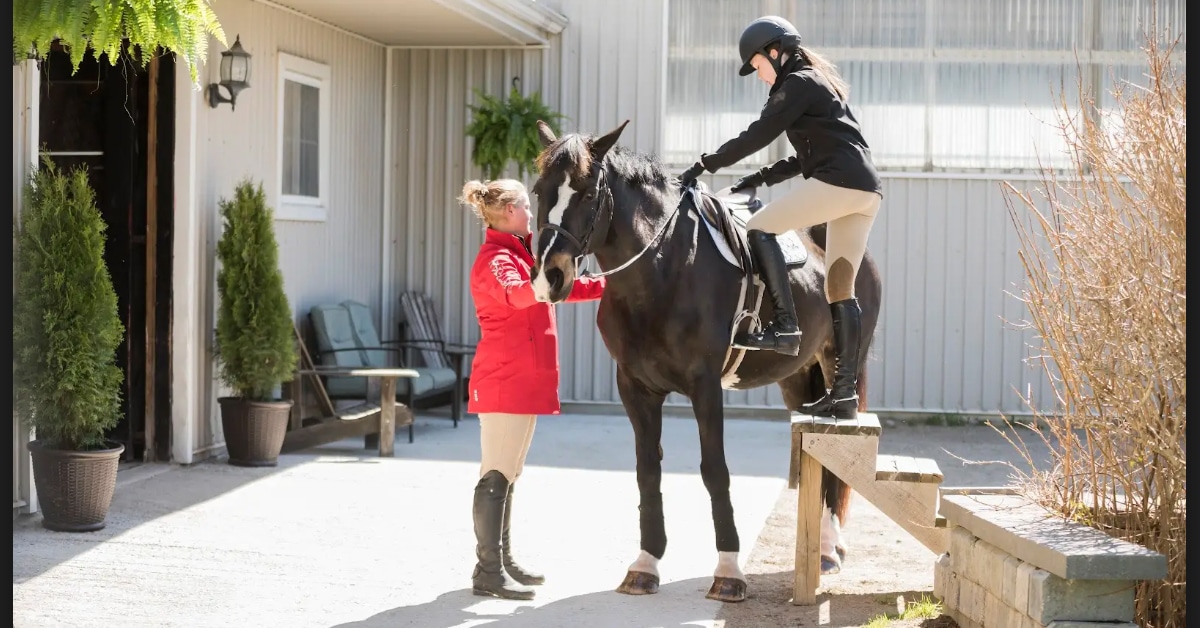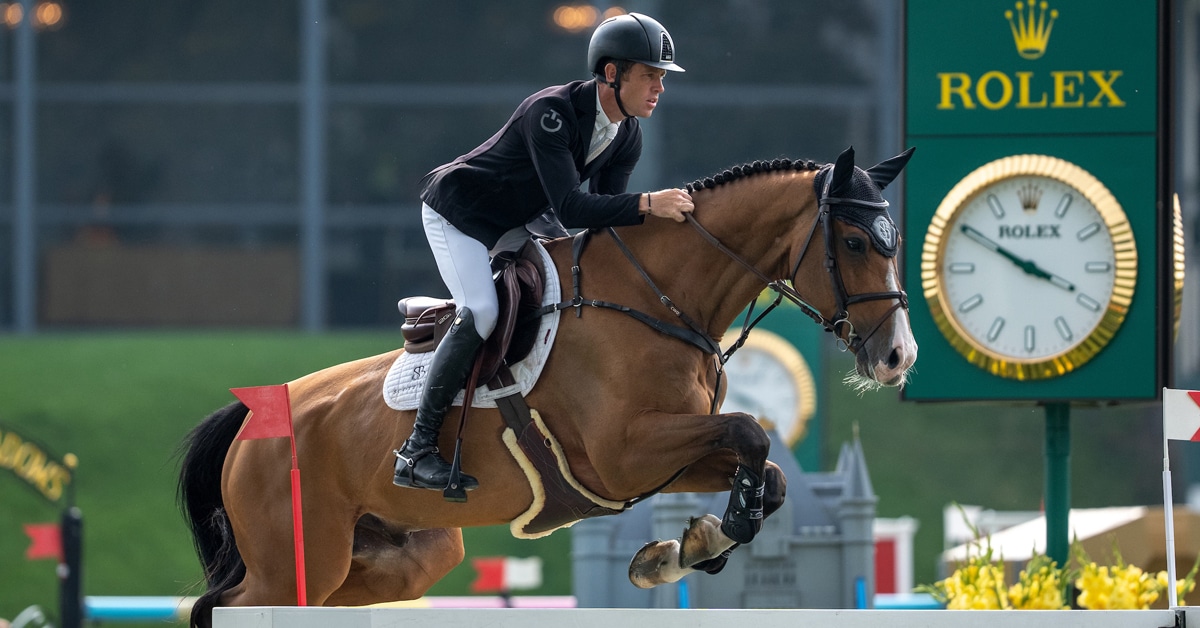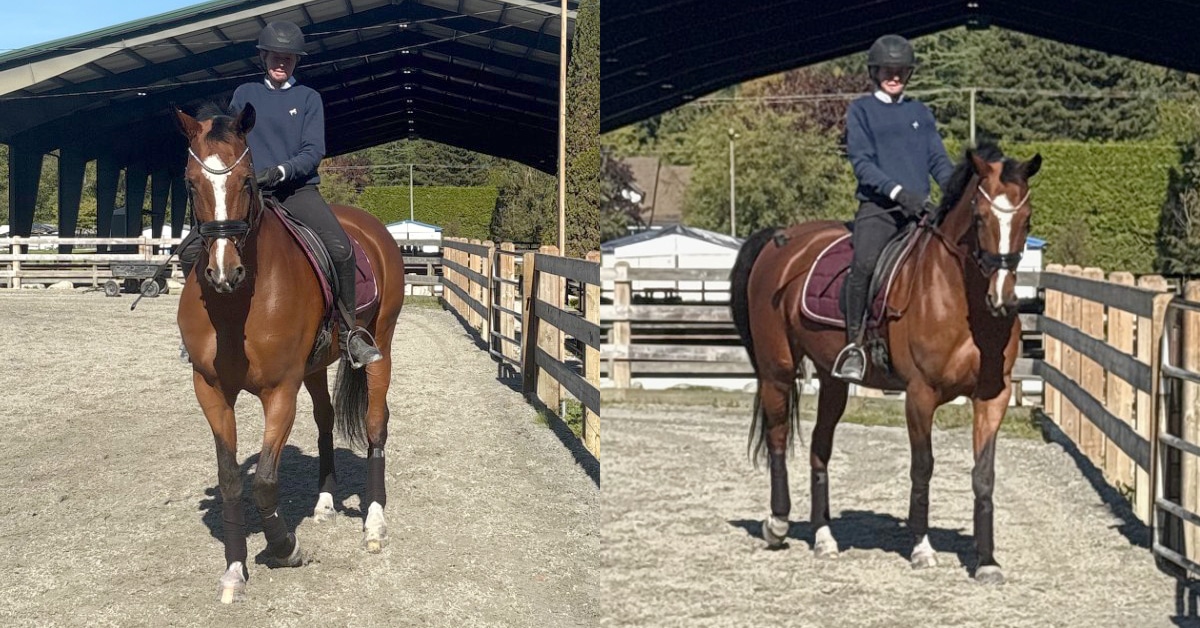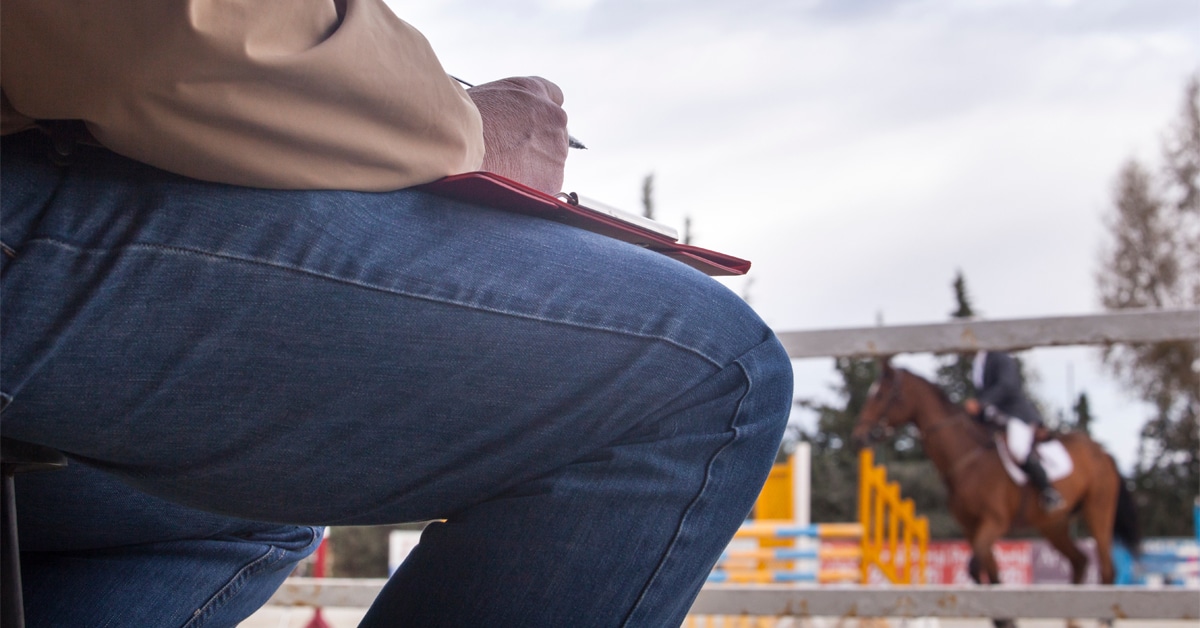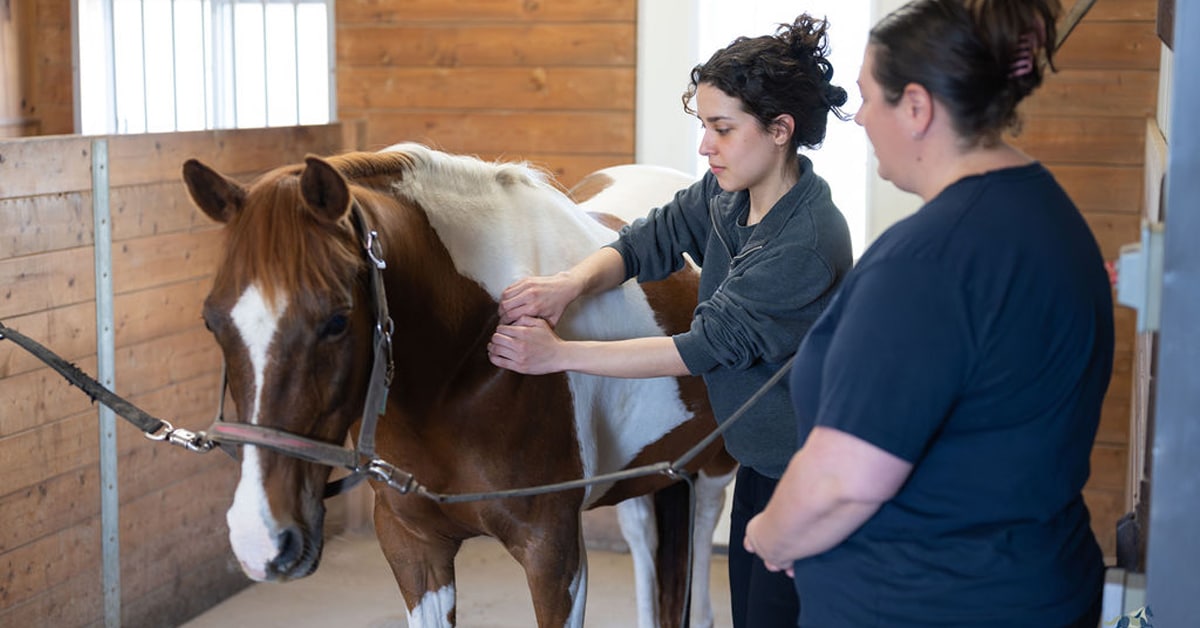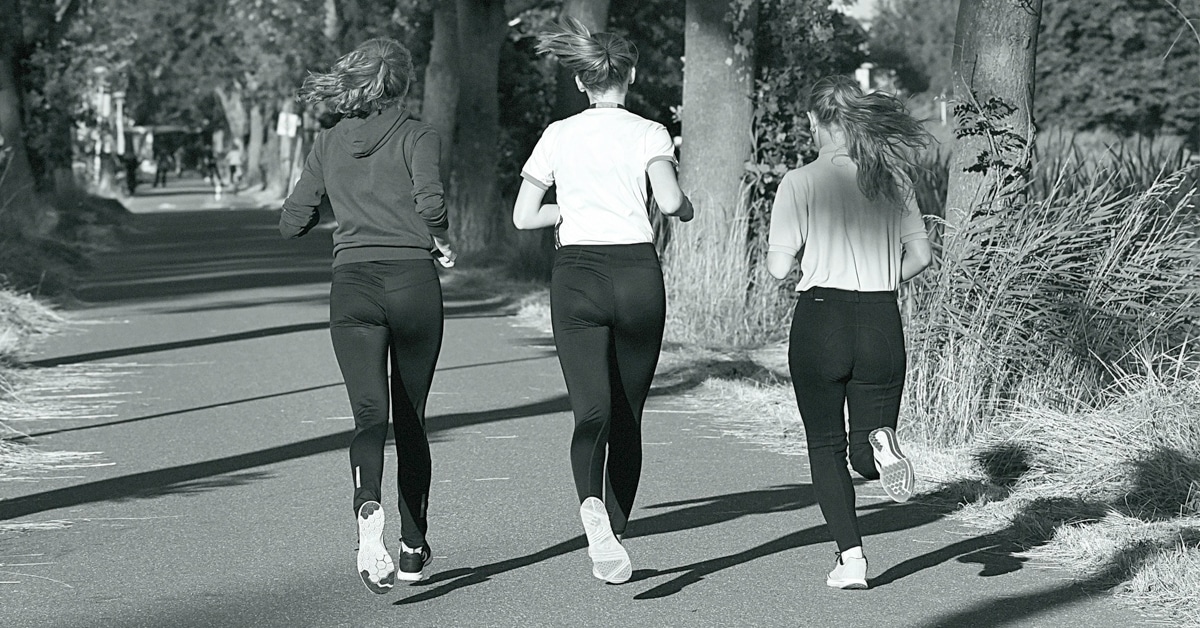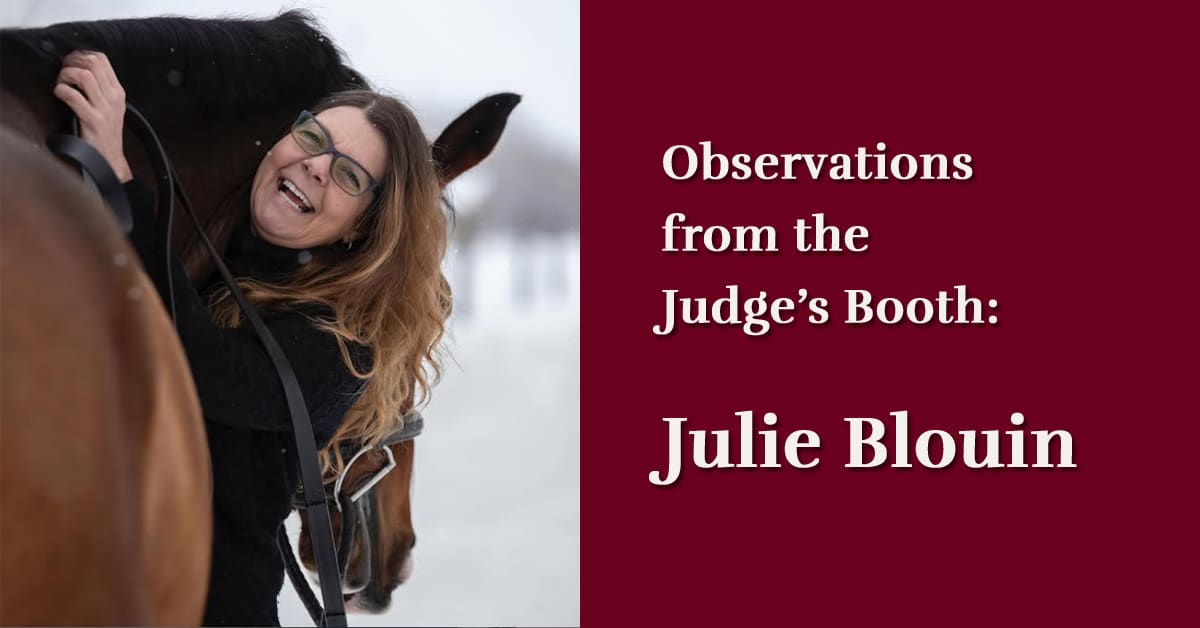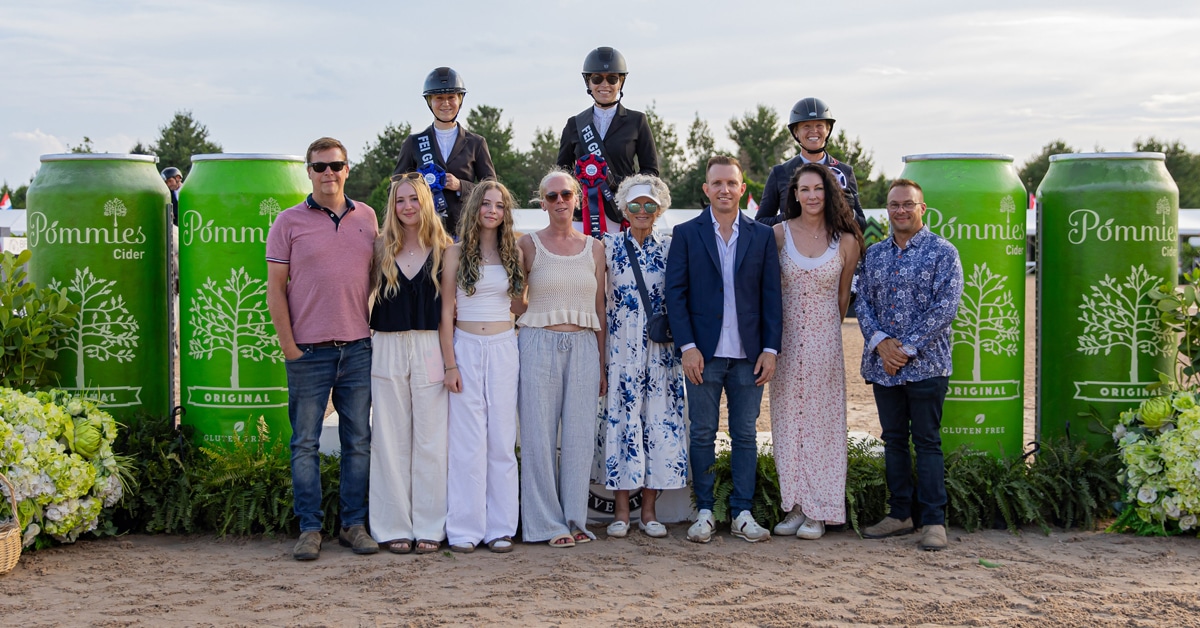There is one main element that makes the coach and rider relationship special: each time a rider gets on her horse, she is risking serious injury or death. While there are many other sports that are dangerous, none require a human being to sit on a 600-kg animal that has a mind of his own, much less ask it to jump over or race around obstacles. Riders are in the unique position of accepting the fact that riding is risky and making the choice to do it anyway.
One of the factors that allow a rider to put herself in danger is the trust she has in her coach. It’s not uncommon to hear a rider say, “If my coach thinks I can do it, then I can do it.” Riders rely on coaches to help keep them safe, even if they are not completely conscious of the fact. If our coach says “whoa” we stop, because on some deep level we trust that he/she knows more than us about this animal underneath us and is committed to ensuring our success and even survival.
In many ways, the coach-rider relationship mimics the relationship we had with our primary caregiver back when we were infants and were powerless to protect ourselves. If we had adequate nurturing and support, we developed trust that our needs would be met and we would be safe. Attachment theorists Bowlby (1969), Harlow (1932) and Ainsworth (1978) studied this extensively.
Riders, particularly when young, look up to their coaches as experts and trust that they have their best interests at heart. Many equestrians feel compelled to seek their coach’s approval and say they feel crushed when their coach doesn’t have time for them or doesn’t think they are performing well. When we were kids and our parents were displeased with us, we felt the same feelings of shame and loneliness. It’s all because of the primary instinct to attach and bond with other humans that ensure our survival (Erikson, 1958).
It’s because of this special relationship that riders suffer so much when coaches are unethical or abusive towards them. When an equestrian coach does not adhere to the Ethics in Coaching policies and crosses the line to emotional, sexual, or psychological abuse, it can feel like being abused by a parent. Riders have shared stories of coaches calling them names, giving them the silent treatment, and excluding them from social circles. Research has shown that emotional abuse leads to shame, low self-esteem, fear, anxiety, depression, and symptoms of PTSD.
When we are shamed by a coach, our stress levels increase. Cortisol, a stress hormone, increases and the fight-or-flight instinct clicks on in the brain. Studies show that as cortisol increases, our cognitive functioning decreases (2018 Davis et al.). When this happens, riders cannot concentrate on riding or do what the coach is telling them to do, which in turn increases the risk to the rider. It becomes a vicious cycle.
The relationship between coach and rider is also critical to the rider’s success. In a 2008 study by Penny Wurthner, the most significant factor in an athlete’s successful performance at the Olympics was the quality of the relationship with their coach.
The saying “Riders don’t leave barns, they leave coaches” is probably true. But it doesn’t have to be. The best equestrian coaches understand the uniqueness of the coach-rider relationship and work hard at maintaining appropriate emotional boundaries with their athletes. These coaches truly recognize the power they have within the relationship and do not abuse it by shaming and blaming their riders. Instead, they work hard to create an atmosphere of mutual respect that is free of name-calling, silent treatment, and other manipulative tactics that destroy trust. When riders feel safe, both physically and emotionally, they can focus on the art of riding and their coaches get the benefit of having coachable athletes.
The Latest
